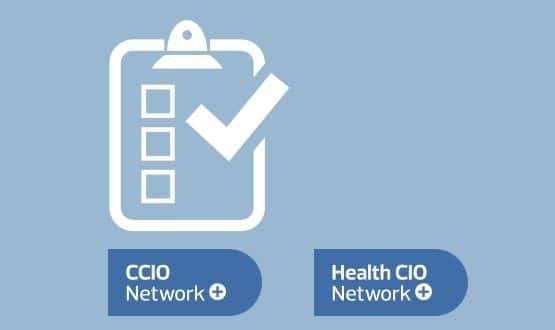A new national survey of NHS IT leaders has found that only a third of chief information officers and IT directors have clear board level responsibility for IT.
In almost a third of NHS organisations, the CIO or IT director is not even responsible for the IT budget. In many cases, IT falls under the remit of the finance director.
The Digital Health Intelligence NHS IT Leadership Survey, 2015, was sent exclusively to members of the CCIO and Health CIO networks.
Sixty seven of the most senior NHS IT leaders working in trusts and clinical commissioning groups completed the survey, which is due to become an annual fixture.
It reveals that – despite exhortations to invest in technology from ministers, NHS England and other central bodies – very few boards have CIOs on them.
Trust finance directors were reported to have board level responsibility for IT in a quarter of NHS organisations.
Other board members reported to hold responsibility for IT were operations and performance directors (13%); the chief executive (12%); or the medical director (7%). In 4.5% of cases the responsibility lay with a chief clinical information officer; possibly a trend to watch.
In open responses, one acute trust IT director said: “All trust boards should have the director of IT on them. This should be an essential part of the functioning of any healthcare organisation.”
The IM&T director of another acute trust said: “Chief executives need to bring their CIOs and CCIOs much closer to them and into an executive context. This is one area the arms length bodies could help by offering clear guidance and timescales.”
A mental health CCIO said: “I would like to see many more CCIOs [like myself] being at the board table.”
The survey also asked who has budget responsibility for IT in NHS organisations. Almost two-thirds of respondents (63%) said it was the CIO or IT director.
Conversely, just over a third of respondents said that someone else held this responsibility. In a fifth of cases (20%) that someone else was the finance director.
If few CIOs have a place on the board – and if a significant percentage don’t control the overall IT budget – they do at least exert a significant influence.
The survey probed board attitudes and engagement on IT. Encouragingly, some 80% of NHS IT leaders surveyed agreed with the statement: “The board relies on the CIO to inform them about IT.”
By comparison, only 35% agreed with the statement: “The board relies on the CCIO to inform them about IT.”
Non-executive directors – often cited as a valuable source of outside knowledge on technology – fared even worse. Only 22% of respondents agreed with the statement: “The board relies on non-executive directors to inform them about IT.”
Overall boards were reported to have positive attitudes to IT. Almost 90% agreed with the statement: “The board at my organisation supports IT”, while 82% agreed with the statement: “The board sees IT as a key strategic investment necessary for improving performance.”
However, while generally supportive, many boards were said to lack an in-depth understanding of IT issues. Only 43% of respondents agreed with the statement: “The board has a fairly sophisticated understanding of IT.”
And for some CIOs and CCIOs problems with their board run much deeper. Over a fifth (21%) agreed with the statement: “The board sees IT primarily as a cost”. And 11% agreed with the deliberately provocative statement: “The board sees IT as a minefield to be avoided.”
Some of the real-world challenges of getting boards under massive financial pressures to support IT investments were reflected in the survey’s open comment responses.
“From an acute trust perspective the day-to-day financial challenges are so huge that senior management time is constantly focused on that, and there is little bandwidth to attend to other issues, such as IT,” said the CCIO of one acute foundation trust.
“It needs brave leadership, and the rapid turnover of CEOs doesn’t help,” noted the CCIO of a further acute foundation trust. “I’m also concerned that the level of IT literacy of our leaders is poor.”
Further results of the first NHS IT Leadership Survey will be presented at EHI Live 2015 in Birmingham this week. Digital Health Networks will be running the annual CCIO and Health CIO national conferences, and Digital Health’s Intelligence and sales teams will be on stand D26.

